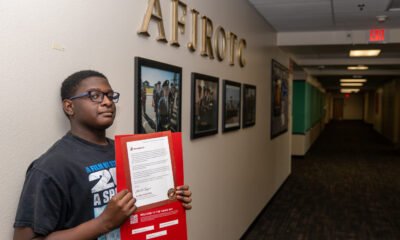American Council on Education
Urgent Push for U.S. Colleges to Acknowledge High School Advanced Coursework

In the United States, the burden of student debt is staggering. Recent findings indicate that the average graduate carries approximately $30,000 in debt for their bachelor’s degree, hampering financial stability for years afterward.
While political discussions linger around loan forgiveness, strategies to encourage student achievement exist that do not rely on accumulating debt. Colleges must also take steps to acknowledge academic excellence from high school, granting students fairer access to higher education.
The concept of recognition in higher education is multi-faceted. This may involve validating high school diplomas from different regions or understanding how particular programs can enhance a student’s admissions prospects.
One pivotal aspect of this recognition involves facilitating the transfer of rigorous high school coursework into college credits. This practice is crucial not only for reducing the financial burden facing students but also for promoting equitable access, especially for those from low-income backgrounds.
When universities acknowledge advanced coursework, they open doors for students, allowing them to advance more quickly in their academic journeys. This recognition ultimately benefits institutions as well.
For students, gaining advanced status for rigorous high school courses can be transformative. This benefit encourages students to enroll in tougher courses, fostering excellent preparation for their future college and career endeavors. Research highlights that participation in advanced courses notably boosts retention and graduation rates among low-income and historically marginalized students.
Transferring these high school credits enables students to bypass basic courses and dive into specialized classes for their majors. As a result, they can often complete their degrees more quickly, significantly lowering the financial costs typically associated with prolonged education.
Additionally, this recognition enriches the college experience, allowing students the flexibility to double major, pursue minors, or partake in activities such as studying abroad.
From the perspective of universities, acknowledging advanced high school courses can attract more capable applicants. Students who excelled in rigorous academic environments tend to be the innovative thinkers colleges seek.
Colleges can enhance their appeal by enabling greater flexibility for students to graduate early. Recognition of their hard work with college credit is vital. Just as schools attract athletic talent, they can similarly draw future leaders by valuing rigorous academic preparation.
Increased graduation rates also benefit educational institutions. Motivated students are more likely to complete their degrees, positively impacting the institution’s reputation and attracting a higher caliber of applicants over time.
In a landscape where competitive and diverse student bodies are essential, the recognition of advanced high school coursework becomes crucial. It plays a significant role in enhancing applications and retention among top talent while also providing essential financial relief to students.
The American Council on Education (ACE) serves a crucial role in higher education. Their recommendations guide what constitutes preparedness for college. Recent suggestions include awarding at least three academic credits for International Baccalaureate scores of 4 or higher, covering all reviewed courses, and 12 credits for language courses, facilitating bypass of two or three semesters.
Independent reviews emphasize that high standards in high school curricula give students a significant advantage in higher education.
Implementing fair credit recognition policies can attract competitive students and alleviate the excessive financial burdens students face in their quest for higher education.
By increasing access to rigorous coursework, we can empower students, elevate their chances of college admission and success, and ultimately ease their financial obligations.
Marie Vivas is a Senior Recognition Manager at the International Baccalaureate Organization.

















